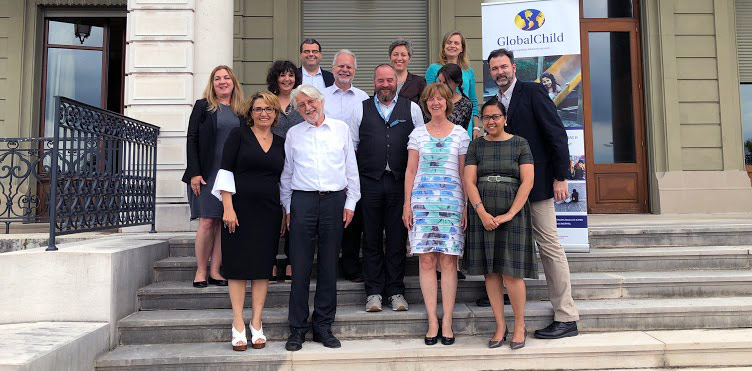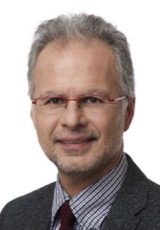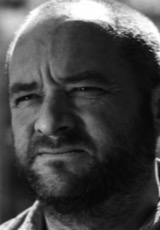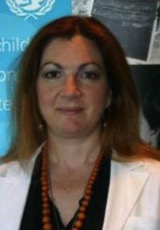

Ioannis Dimitrakopoulos is the scientific adviser of the European Union Agency for Fundamental Rights (FRA). His areas of expertise include equality and non-discrimination, Roma and minorities, hate crime, social inclusion, social rights, and child rights. He is a social scientist with a particular interest in indicator development.
Since 1983 he worked in academic institutions, where he lectured and conducted quantitative and qualitative social research. In parallel, during the 1990s he worked in local and regional government. Later he also coordinated national and transnational research projects at European Union level. He started working at FRA in 2003 and has been responsible for several of the Agency’s major publications.

Dr. Lothar Krappmann was a member of the UN Committee on the Rights of the Child from 2003 to 2011. He studied sociology, philosophy, and modern history at universities in Frankfurt and Cologne, and completed his doctorate in sociology at the Freie Universität Berlin. Until his retirement, he was a senior researcher at the Max Planck Institute of Human Development in Berlin.
His main field of research is the social, emotional, and moral development of children in family, school, kindergarten and day care institutions, with special interests in vulnerable groups of children, particularly children growing up in poverty. He remains involved in a number of activities and programmes promoting citizenship education and children’s participation in kindergarten and school. Lothar has served on advisory boards to research institutions, social welfare organizations, and governmental agencies.

Kirsten Sandberg is professor of law at the University of Oslo. She was a member of the UN Committee on the Rights of the Child from 2011 to 2019, serving as the committee’s chairperson from 2013 to 2015. Her research focus is on child law and children’s rights, including the right of the child to be heard, the best interests of the child, child protection, gender identity and climate change.
She teaches child law, public administration law and social welfare law. Professor Sandberg has published and presented widely on children’s rights around the world, including lectures at the University of Zimbabwe and Yunnan University, China. She has served as acting justice in the Supreme Court of Norway and has worked in the legal department of the Norwegian Ministry of Justice.
Marcus Stahlhofer is the human rights advisor for the Department of Child and Adolescent Health (CAH) at the World Health Organization (WHO) in Geneva, Switzerland. He coordinates the work of the WHO in the areas of children’s rights and is responsible for the integration and application of international human rights norms and standards to various aspects of the organization’s work on child and adolescent health.
His work ranges from training WHO staff, government officials, and health professionals to developing and implementing rights-based guidelines and tools to strengthen national legal and policy environments to support child and adolescent health policies and programmes. Prior to his post with WHO, Mr. Stahlhofer worked as a volunteer and human rights specialist in refugee camps in Croatia during the armed conflict and worked at UNAIDS as the associate human rights advisor.
He holds degrees in international relations and international human rights protection from the London School of Economics and Political Science, and the University of Kent at Canterbury.

Alan is the representative to the United Nations in Geneva for SOS Children’s Villages International. Over the last ten years, as both co-convenor and active member of the Child Rights Connect Working Group on Children without Parental Care, he has advocated for the recognition and welcoming of the UN Guidelines for the Alternative Care of Children (the Guidelines) and continues to advocate for their implementation.
In that regard he has also worked closely with many partners on various steering groups to develop the Moving Forward handbook, the “Getting Care Right for All Children” massive open online course, the MOMENTUM Conference in 2016, and the Tracking Progress tool to monitor implementation of the Guidelines.
Alan has also served for over seven years on the executive committee of Child Rights Connect, an international child rights network that serves to support effective civil-society engagement with the monitoring work of the UN Committee on the Rights of the Child. Previously, whilst with the Bernard van Leer Foundation, Alan also played a key role in the development of an indicators framework for CRC General Comment 7 on implementing rights in early childhood. Alan is also a former child care practitioner and holds degrees in Psychology (BSc: Stirling University) and Human Rights (MA: Essex University).

Lisa Wolff is Director, Policy and Education at UNICEF Canada. She has worked in the organization for more than a decade leading education and policy focused work to advance the rights of Canada’s children to develop to their fullest potential, consistent with international human rights standards. Collaborating with government, institutions, civil society, researchers and private sector partners, Lisa has developed initiatives to advance children’s rights in policy, governance, child related programming and educational curricula. These include training programs, symposia, parliamentary engagement and other efforts to help ensure every childhood is a good one. Lisa is a member of the Board of Directors of PREVNet, the Canadian Coalition for the Rights of Children and the North-South Partnership for First Nations Children.
She has a bachelor of environmental studies from University of Waterloo, a bachelor of education and master of education from the University of Toronto. Lisa received the Queen Elizabeth II Diamond Jubilee Medal from the Governor-General of Canada in 2012.